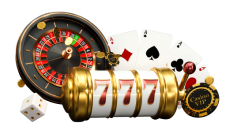Gambling Addiction
Help for Problem Gambling
Aussies everywhere enjoy pokies and casino gaming. However, sometimes things can fall out of our control and bad habits begin to develop. It is important to recognize the signs of a gambling problem/addiction.
We have created an expert guide to help you learn what gambling addiction looks like, why it happens, and how you can help yourself or somebody you care about.
Defining Gambling Addiction
The addiction to a casino game is just like other impulse control disorders. Punters become unable to harness their actions, even though they realize it is harmful to others and themselves.
Here are the three most common varieties of addictive gaming:
- Problem Gambling- It’s the least extreme type of problem gaming. Players aren’t addicted to casino gaming. They may not compulsively gamble, but their activities are out of control. These players tend to chase losses, and lack the ability to stop when the risk is too great.
- Binge Gambling – This gambler will act like a compulsive player, but only at certain periods of time. They appear to have gaming activity under control. However, once the betting starts, the limits fall off and the gambler loses control.
- Compulsive Gambling- This player lacks control over all gaming activities and will continue to wager their currency without evaluating the consequences. They look for any excuse possible to place a wager, even if they know they cannot pay up if they lose.
These are serious afflictions and one mustn’t try to solve them alone. Look to professional help- you aren’t weak or stupid for asking.
How to Spot A Gaming Problem?
According to HealthDirect, a service of the Australian Department of Health and Aged Care, here are some signs of a gambling problem.
The DSM 5 diagnosis for Gambling Disorder states four or more of these signs present in a person in the past year are indicative of a gambling problem. (Please note, we are not doctors and cannot give medical advice- this is for informational purposes only).
- You attempt to quit gambling at online casinos, but you keep repeatedly failing
- You utilize family and friends for monetary bailouts to pay for losses from gaming
- You start doing illegal activities to fund your gambling habit
- You lie to family and friends about the money you’re spending at casinos
- You are chasing losses regardless of the price/cost
- You opt for playing instead of dealing with real-life issues
- You feel annoyed or irritated when others try to stop you from using online casinos
- You need to get more funds to feel a thrill
- You constantly are thinking of casino games and when you can play them once more
If you notice yourself in such statements, please ask for help. You don’t have to be “Sick enough” to ask for help.
Safeguarding Yourself From Gaming Addiction
Don’t attempt to fight this alone. You are not weak for asking for help, and professionals/recovering addicts can offer lots of helpful solutions.
- Read about gambling online and learn how to game responsibly
- Use time trackers, and account limiters, and set max deposit amounts for gaming.
- Use self-exclusion features to see how it feels when you have no chance to log into your account
- USe apps to block casino gaming and wagering activities.
- Speak with others about your issues. Join a support group, speak with family and friends, and ask for help. Talking it out helps.
- Speak with a doctor about what you’re going through. They can help you get to the right professional so you can begin the path to recovery.
Treating A Gambling Addiction
- Counseling & Therapy: Psychotherapy can be quite effective for treating gambling addiction. A mental health therapist can help you get to the bottom of the issue, and help you form healthier behaviors. More often than not, there is an underlying problem fuelling your gambling and that must be addressed. See your GP to get started.
- Medicine- Treatment in the form of medication may be prescribed. SSRIs, antidepressants, and anti-seizure medicines are all options. A doctor may prescribe them to help you manage emotions about gambling.
- Support Group- This makes a great learning tool alongside psychotherapy. You talk to peers going through the same issues. You can learn from one another and lean on each other.
Helpful Websites/Phone Numbers
Problem Gambling Helpline – 1800 858 858
Australian Government Gambling Help
What Causes Gambling Addictions?
Social Reasons: Loneliness, depression, distress, trauma
Psychological Reasons: The gambler’s fallacy is one example. If the roulette wheel lands on red five times, the sixth time will be black to make up for the previous results- right? No. However, a problem gambler doesn’t see it that way and can cause denial about wagering.
Biological Reasons: Addiction to gambling is like other addictions. Gambling causes a response akin to using cocaine within our brains. Deficiencies in norepinephrine and serotonin may increase one’s risk for compulsive gambling.
Summary
Gambling addiction is not a joke. It can ruin one’s life. If you feel even slightly that someone you care about, or yourself, has a gambling problem, ask for professional help. You can stop the problem from worsening. It is NOT a sign of failure to ask for help.


